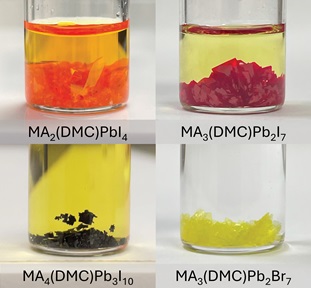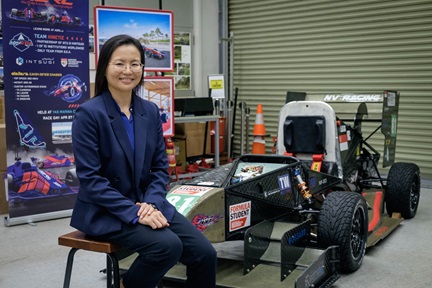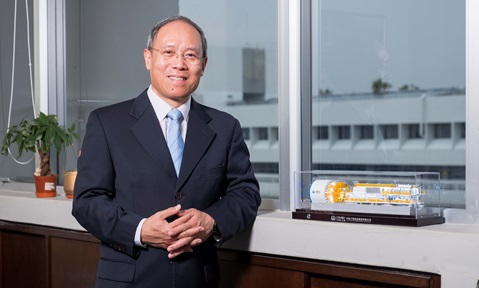Putting research to work: Prof Chen Xiaodong
Prof Chen Xiaodong develops flexible electronics for healthcare innovations.

Prof Chen Xiaodong wants to expand the physician’s toolkit for disease diagnosis.
He and his research team at NTU came up with an electronic glove equipped with sensitive, flexible pressure sensors that can differentiate between healthy and diseased body features.
The innovation could revolutionise patient examinations and help doctors treat patients more effectively. It is also an important step towards the development of medical robots.
Prof Chen’s expertise spans diverse futuristic applications of soft materials, ranging from flexible devices to innovations in carbon capture. In particular, he wants to harness soft materials to create flexible electronics for the next generation of medical devices.
The prolific inventor, with over 50 patents under his belt, advocates that softness embodies strength, viewing it as resilience rather than a weakness.
“Unlike rigid materials that break under extreme stress, soft materials are stable even when stressed as they are flexible and stretchable,” says Prof Chen, who is President’s Chair in Materials Science and Engineering at NTU.
“Soft materials open the door to a multitude of possible healthcare applications, such as soft surgical robots and wearable sensors for continuous health monitoring.”
Prof Chen is also Deputy Director of NTU’s Institute for Digital Molecular Analytics and Science, a research centre dedicated to advancing the science of analysing biological molecules.
One of his ongoing projects involves a data-centric approach for the objective evaluation of complex scents. This project was awarded the Agency for Science, Technology and Research RIE2025 Manufacturing, Trade and Connectivity Programmatic Fund, which supports research that has the potential to create significant impact for Singapore.
and environmental analysis.
Prof Chen has published over 380 papers in top-tier journals. He also serves on several editorial advisory boards while helming prestigious scientific journal ACS Nano as Editor-in-Chief.
To translate technology from his research endeavours, Prof Chen actively collaborates with industry partners and institutions. Together with multinational consumer goods corporation Procter & Gamble, he and his team developed a sensor for testing product textures.
He has also garnered many accolades for his research, including the Dan Maydan Prize in Nanoscience and Nanotechnology in 2023 for his breakthrough contributions to novel nanomaterials and nanodevices, especially for flexible electronics, nano-bio and cyber-human interfaces, and alternative energy applications. He is the first Asia-based recipient of this prestigious prize.
In the same year, Prof Chen received the Kabiller Young Investigator Award conferred by Northwestern University’s International Institute for Nanotechnology. He was recognised for his groundbreaking achievements in creating devices such as soft composite materials, biosensors and neural interfaces, which hold transformative implications for nanoscience and nanomedicine.
Besides heralding future healthcare innovations, Prof Chen is exploring the potential uses of soft materials for capturing atmospheric carbon dioxide to tackle global warming.
“I am motivated by the prospect of making a positive impact in the world through my research, and I aspire to continuously deliver innovative solutions at the interface of human and machine that benefit our society,” says Prof Chen.
The article appeared first in NTU's research & innovation magazine Pushing Frontiers (issue #23, March 2024).



.tmb-listing.jpg?Culture=en&sfvrsn=29c7e020_1)
.tmb-listing.jpg?Culture=en&sfvrsn=55153609_1)


